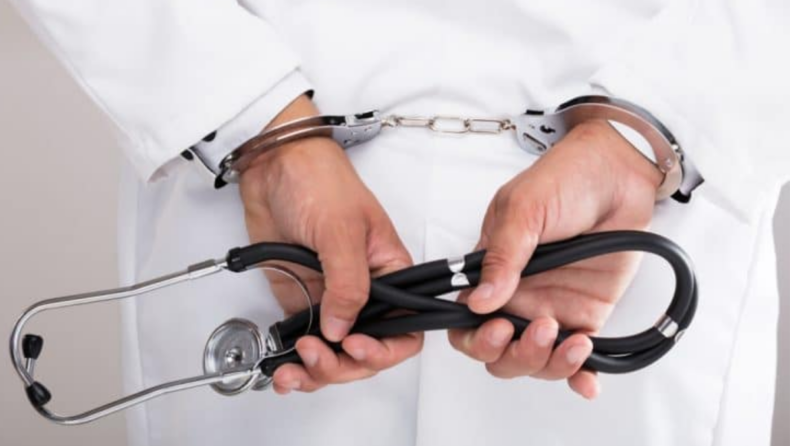Examining the Dolo 650 scam
On August 19, 2022, Micro Labs, a drug company based in Bangalore, was accused of giving doctors gifts worth more than ₹1000 crores to get them to recommend Dolo 650.
But in reality, as the Drugs (Price Control) Order (DPCO) has price capped the Dolo tablets at ₹0.91 per 500 mg tablet and ₹1.83 per 650 mg tablet, the company couldn’t make a profit by touting these medicines.
But besides the business side, it is very important to know how promoting medicines and their less expensive alternatives or generic versions works from a legal standpoint.
Dolo 650 tablet (Basic info)

It falls under the category of analgesics, antipyretics, and anti-inflammatory medicine. Its medical name is paracetamol, and it is used to treat fever and body aches. You can buy it at a pharmacy without a doctor’s prescription.
Ways in which incorrect medicines can be prescribed and their ill-effects
Since the price of a drug depends on how much of it there is and how much of it you take, it makes sense for doctors to:
- Prolonged duration of consumption
- higher concentration of the drug.
- paired or grouped drug combinations (with an additional drug from the same company).
These unethical medical practices have undesirable effects, such as:
- patient’s health.
- Enduring pathogens and new variants of them
- A large cartel sways away market competition by eclipsing other players.
- Due to monopoly power, indefinitely high prices
Laws to regulate such unethical practices

1. The Uniform Code of Pharmaceutical Marketing Practices:
This law was notified by the Department of Pharmaceuticals (DoP) in 2014 and the enforcement is monitored by the Indian Pharmaceutical Alliance. This law tries to stop pharmaceutical companies from acting in an unethical way.
The law restrains giving to medical practitioners and health care professionals promotional materials in the form of text, audio, video, or medical samples (through medical representatives) in exchange for cash, money grants, shopping vouchers, or any other kind of material benefits.
But this law is not universally mandatory, however the individual pharmaceutical companies can get registered to abide by this voluntarily, following which they will be under scrutiny. Therefore, there is no strict enforcement mechanism.
2. The Income Tax Act of 1961:
By not letting doctors take deductions for expenses like these, the act discourages drug companies from giving doctors free stuff.
3. Indian Medical Council (Professional Conduct, Etiquette and Ethics) Regulations, 2002:
Mandates Doctors to prescribe generic versions of the drugs as far as possible.
4. Supreme Court judgement on freebies given to doctors, 2002:
The Supreme Court ruled against giving doctors any kind of freebies.
Measures were taken by the government
The Pradhan Mantri Bhartiya Janaushadhi Pariyojana Scheme (PMBJP) was started on November 1, 2008, with the goal of making generic medicines available and spreading them through doctors.
“The scheme teaches people about generic medicines to get rid of the idea that high-quality medicines can only be bought for a lot of money.”
To further make it easy for people, a common market for generic medicines called Jan Aushadhi Kendras was established by the Bureau of Pharma PSUs in India (BPPI) under this scheme. At present, over 726 districts across India have Jan Aushadhi Kendras.
Following the subsuming of this scheme under the Pradhan Mantri Jan Arogya Yojana (PMJAY) in 2018, there was an increase in the number of Jan Aushadhi Kendras, which stands at 7,500 now. And the products marketed rose from 131 in 2014 to 1,449 medicines and 204 surgical items.
Ethical recommendations with a holistic approach
- Doctors must write prescriptions without brand names and recommend generic versions of drugs as much as possible (instead of standard drugs).
- No matter what the MRP of the drug is, pharmacies will promote the drugs that make them the most money, so the government can offer the most incentive to promote the drug with the lowest MRP.
Eg:
| Drug
(With the same biological effect) |
MRP | Incentives by the government | Opinion of pharmacy |
| A | ₹10 | ₹2 | As “Drug – B” is having twice the incentive as “A”, pharmacies prefer to promote “Drug – B”. |
| B | ₹7 | ₹4 |
Hence, this is a win-win situation for both patients and pharmacies.
- The “Uniform Code of Pharmaceutical Marketing Practices (2014)” must be made mandatory.
Read More – CBDT Alleges Dolo-650 Makers Of Business And Tax Irregularities
& SCAM : Dolo-650 Makers Spent Rs 1,000 Crore On Doctors













